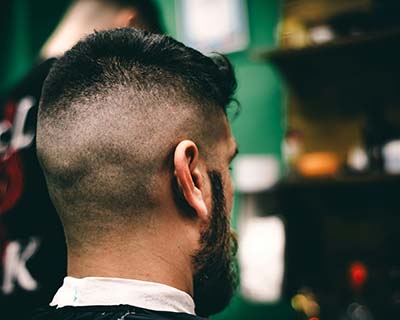Hair loss is a common concern for many individuals, leading some to explore hair transplant procedures as a solution. One of the most common questions about hair transplants is whether hair will regrow in the donor area after follicle extraction.
The Science Behind Hair Transplants
Hair transplantation transfers hair follicles from the back or sides of the scalp to areas needing growth, such as the front or top. Surgeons select the donor area because its hair follicles naturally resist balding, making them a permanent solution.
 Will Hair Regrow in the Donor Area?
Will Hair Regrow in the Donor Area?
The short answer is yes, but with a few considerations:
- Healing Process: After a hair transplant, the donor area undergoes a healing process. Initially, there may be some temporary shedding of hair in the donor site, but this is part of the normal response to the procedure.
- Regrowth of Hair: Over time, the hair follicles in the donor area begin to regrow. Typically, within a few weeks to months after the procedure, new hair starts to emerge from the donor area. The regrowth may continue for up to a year as the follicles fully recover from the transplant process.
- Scarring: The method of extraction (either follicular unit transplantation (FUT) or follicular unit extraction (FUE)) can affect scarring in the donor area. FUT leaves a linear scar that can usually be hidden by surrounding hair, while FUE involves small punctate scars that are less noticeable and may fade over time.
- Care and Maintenance: Proper post-operative care is crucial for ensuring optimal healing and regrowth in both the donor and recipient areas. Following your surgeon’s instructions regarding shampooing, avoiding trauma to the scalp, and any prescribed medications will support healthy hair regrowth.
Final Thoughts
While hair does grow back in the donor area after a transplant, it’s important to have realistic expectations about the outcome. The regrowth may vary from person to person based on factors such as genetics, the skill of the surgeon, and the technique used. Consulting with a qualified hair restoration specialist can provide personalized insights into what you can expect during and after the procedure.
In conclusion, choosing to undergo a hair transplant can be a significant decision for addressing hair loss concerns. Understanding that hair will grow back in the donor area helps alleviate concerns about the procedure’s impact on long-term hair health. With advancements in techniques and careful post-operative care, individuals can achieve natural-looking results and restored confidence in their appearance.
If you’re considering a hair transplant or have further questions about the procedure, consulting with a Hair Restoration Centers specialist will provide you with the tailored information you need to make an informed decision.
Call us today, 1 (888) 546-4508, for more information.
Hair loss is a common concern for many individuals, leading some to explore hair transplant procedures as a solution. One of the most common questions about hair transplants is whether hair will regrow in the donor area after follicle extraction.
The Science Behind Hair Transplants
Hair transplantation transfers hair follicles from the back or sides of the scalp to areas needing growth, such as the front or top. Surgeons select the donor area because its hair follicles naturally resist balding, making them a permanent solution.
 Will Hair Regrow in the Donor Area?
Will Hair Regrow in the Donor Area?
The short answer is yes, but with a few considerations:
- Healing Process: After a hair transplant, the donor area undergoes a healing process. Initially, there may be some temporary shedding of hair in the donor site, but this is part of the normal response to the procedure.
- Regrowth of Hair: Over time, the hair follicles in the donor area begin to regrow. Typically, within a few weeks to months after the procedure, new hair starts to emerge from the donor area. The regrowth may continue for up to a year as the follicles fully recover from the transplant process.
- Scarring: The method of extraction (either follicular unit transplantation (FUT) or follicular unit extraction (FUE)) can affect scarring in the donor area. FUT leaves a linear scar that can usually be hidden by surrounding hair, while FUE involves small punctate scars that are less noticeable and may fade over time.
- Care and Maintenance: Proper post-operative care is crucial for ensuring optimal healing and regrowth in both the donor and recipient areas. Following your surgeon’s instructions regarding shampooing, avoiding trauma to the scalp, and any prescribed medications will support healthy hair regrowth.
Final Thoughts
While hair does grow back in the donor area after a transplant, it’s important to have realistic expectations about the outcome. The regrowth may vary from person to person based on factors such as genetics, the skill of the surgeon, and the technique used. Consulting with a qualified hair restoration specialist can provide personalized insights into what you can expect during and after the procedure.
In conclusion, choosing to undergo a hair transplant can be a significant decision for addressing hair loss concerns. Understanding that hair will grow back in the donor area helps alleviate concerns about the procedure’s impact on long-term hair health. With advancements in techniques and careful post-operative care, individuals can achieve natural-looking results and restored confidence in their appearance.
If you’re considering a hair transplant or have further questions about the procedure, consulting with a Hair Restoration Centers specialist will provide you with the tailored information you need to make an informed decision.
Call us today, 1 (888) 546-4508, for more information.
